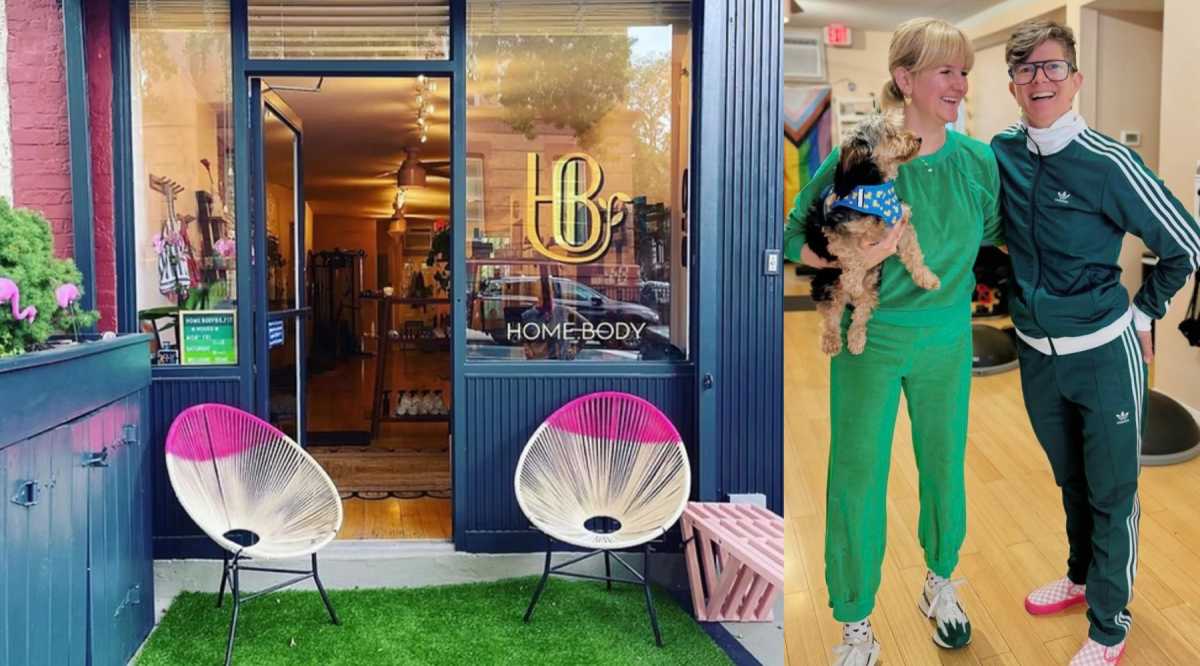Several corporations are racing to dismantle their diversity, equity, and inclusion (DEI) initiatives in the face of pressure from right-wing activists who have sought to expose the companies on social media over their LGBTQ-inclusive policies and other efforts to support workers.
Many of the companies have been caving in response to social media call-outs by Robby Starbuck, a right-wing social media personality who has posted bogus false, anti-LGBTQ rhetoric to his page on X complaining about “far left activists” who he said “will stop at nothing” to “indoctrinate [children], sexualize them, guilt them, and punish them until they submit to their woke religion.”
In recent days, Starbuck has leaked internal letters sent to employees at various companies in an apparent bid to force the companies to change course on their diversity campaigns. So far, it’s working.
Brown-Forman, which owns Harley-Davidson and Jack Daniel’s, sent an email to employees saying the company is no longer participating in Human Rights Campaign’s (HRC) Corporate Equality Index, which measures how individual businesses are treating LGBTQ employees, consumers, and other stakeholders. Brown-Forman is also ditching its workforce and supplier diversity ambitions and is ensuring that employee goals are tied to performance, according to the leaked letter, which was posted by Starbuck.
Brown-Forman did not respond to a request for comment.
Starbuck also claimed to be the driving force behind similar changes at Lowe’s, which said it would stop participating in HRC’s corporate equality index and no longer sponsor or participate in community events such as Pride Marches.
“Big news: I messaged @Lowes executives last week to let them know that I planned to expose their woke policies,” Starbuck said in an X post on Aug. 26. “This morning I woke up to an email where they preemptively made big changes.”
A similar storyline has played out at Ford, where another leaked memo showed CEO Jim Farley saying the company took “a fresh look” at its policies over the past year and decided to ban hiring quotas and compensation tied to diversity goals, overhaul its employee resource groups to now focus on “networking mentorship, personal and professional development, and community service,” and terminate its participation in HRC’s Corporate Equality Index.
When Gay City News asked Ford for a reason behind the changes — including the decision to pull out of HRC’s Corporate Equality Index — a company spokesperson avoided a direct answer.
“The communication to our global employees speaks for itself,” Richard Binhammer, a spokesperson for Ford’s corporate and public policy communications department, said in an emailed statement to Gay City News. “We have nothing further to add.”
In response, HRC slammed Ford for caving to pressure from the right and suggested that the LGBTQ community could take its business elsewhere.
“Today, @Ford ABANDONED its values and commitments to an inclusive workplace, cowering to MAGA weirdo Robby Starbuck,” HRC wrote in a post on X. “With the LGBTQ+ community wielding $1.4 TRILLION in spending power and 30% of Gen Z identifying as LGBTQ+, we won’t forget this shortsighted decision and its impact.”
The disturbing trend follows other examples of businesses moving away from diversity initiatives and LGBTQ visibility in recent years. Target, which maintained a Pride display for more than a decade, limited its Pride merchandise for a second straight year after pointing last year to a dip in sales as well as threats to workers from anti-LGBTQ customers. Anheuser-Busch InBev, the owner of Bud Light, also faced enormous backlash after partnering with Dylan Mulvaney on a Bud Light Instagram promotion last year that led to boycotts targeting the brand.
Earlier this year, NBC News reported that the conservative think tank known as the National Center for Public Policy Research threatened to make “a splash” if Best Buy did not screen its employee resource groups’ donations to LGBTQ causes. In turn, Best Buy caved and offered to screen donations, according to NBC News, prompting New York State Comptroller Thomas DiNapoli to pen a letter to Best Buy asking whether the company was committed to inclusivity and LGBTQ groups. The comptroller oversees the state’s public pension fund, which invests in Best Buy.
In July, DiNapoli said he would vote against re-appointing Best Buy’s chair and other board members next year, according to the Wall Street Journal.



































